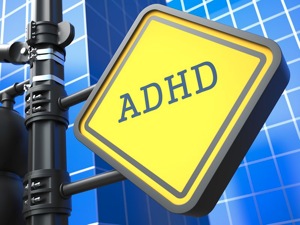One in five children have a mental disorder; lower the risk before pregnancy

One in five American children today has a mental disorder and the rate is rising, according to a report from the Centers for Disease Control and Prevention (CDC). Affecting 13 to 20 percent of youth under 18, mental disorders impact a child’s behavior, ability to learn, and cope with their emotions. Although researchers don’t have a definitive explanation for the rise, studies have linked a mother’s autoimmune disease during pregnancy, environmental chemicals, and industrialization of food with the rise in childhood brain disorders. All of these factors profoundly affect the developing brain in utero and can lead to a brain disorder in childhood.
The rapid rise in the rate of childhood brain disorders is alarming and unnerving. For instance, one study showed the rate of hospital stays among children for mood disorders increased 80 percent since 1997. Inpatient admissions for mental health issues and substance abuse increased 24 percent between 2007 and 2010.
The most commonly diagnosed brain disorder is attention-deficit/hyperactivity disorder (ADHD), affecting nearly 7 percent of children. Other commonly reported issues include autism, anxiety, depression, Tourette’s syndrome, and behavioral disorders. Alcohol and substance abuse are issues as well.
The brain begins developing as early as the first trimester and is profoundly impacted by the health of the immune system. When a pregnant woman has an unmanaged autoimmune condition, such as Hashimoto’s hypothyroidism, type 1 diabetes, rheumatoid arthritis, vitiligo, etc., it means her immune system is imbalanced and overactive. Research has shown that some mothers of children with autism carry immune compounds called antibodies in their bloodstream that react against proteins in the brain. These antibodies damage the developing brain of the fetus while in utero and may cause autism. Women with autoimmune disease are more likely to carry these immune antibodies.
A parent’s diet, physical activity, stress hormone levels, and exposure to environmental chemicals are other examples of factors that can affect a child’s brain development beginning in utero.
We see evidence of immune imbalances in children with brain disorders as they typically also suffer from multiple food intolerances, stomach pain, chronic constipation, leaky gut, asthma, eczema, yeast infections, and other issues that signal an imbalanced immune system.
The rising rate of childhood brain disorders is a pressing concern that will continue to affect all aspects of society. Although there is no easy answer, parents-to-be can lower their risk of giving birth to a child with ADHD, autism, or other brain disorder by limiting exposure to environmental toxins both in the home and outside (for instance, rates of autism are found to be higher in those whose mothers lived near freeways during pregnancy), eating a whole foods diet free of common food sensitivities (such as gluten), and testing for and managing any autoimmune reactions.
For more information about how to manage autoimmunity, contact my office.
Read more http://michaelruscio.blogspot.com/2013/12/one-in-five-children-have-mental.html
Discussion
I care about answering your questions and sharing my knowledge with you. Leave a comment or connect with me on social media asking any health question you may have and I just might incorporate it into our next listener questions podcast episode just for you!